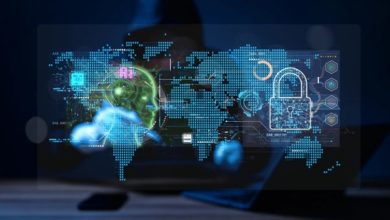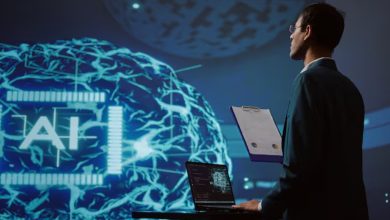DigiCert Unveils 2025 Security Predictions for Asia-Pacific
Digital Trust Leader Unveils What Might Be in Store for Next Year

DigiCert, a leading global provider of digital trust, has released its annual forecast of cybersecurity predictions for identity, technology, and digital trust expected to shape the landscape in 2025 and beyond. Digicert’s 2025 Security Predictions provide a snapshot of the cybersecurity challenges and opportunities enterprises in APAC will encounter in the months ahead.
Prediction 1: Post-Quantum Cryptography Takes Off
According to Digicert’s 2025 Security Predictions, 2025 marks a pivotal year when post-quantum cryptography (PQC) shifts from theoretical frameworks to real-world deployments, with significant momentum in the Asia-Pacific region. Governments across APAC, including Japan, South Korea, Australia and Singapore, are actively advancing quantum readiness through national initiatives. With impending announcements from the U.S. National Security Agency (NSA) and growing compliance pressures, PQC adoption will surge, empowering industries to embrace quantum-resistant solutions.
Prediction 2: Organisations Will Demand Resilience and Zero Outages
The CrowdStrike outage this summer, which caused over 100 flight delays at Singapore’s Changi Airport, underscored the need for better testing of automated updates and stronger digital trust. As IoT adoption grows, concerns about the safety of over-the-air updates, particularly for self-driving cars, are prompting calls for greater transparency in security practices. In response to these evolving risks, Singapore’s Cybersecurity (Amendment) Bill, passed earlier this year, seeks to enhance oversight and enforce stricter measures on high-risk computer systems crucial to national security.
Prediction 3: AI-Driven Phishing Attacks Will Surge
The proliferation of AI will fuel an unprecedented surge in sophisticated phishing attacks, making them harder to detect. Attackers will leverage AI to craft highly personalized and convincing phishing campaigns, while automated tools will enable them to scale attacks at an alarming rate, targeting individuals and organizations with precision. To this end, Digicert’s 2025 Security Predictions note that Singapore registered Asia-Pacific’s biggest spike in identity fraud, driven by deepfake surge.
Prediction 4: Chief Trust Officers Take Centre Stage
Digital trust becomes a boardroom priority, leading to a continued rise of Chief Trust Officers (CTrOs) who will oversee ethical AI, secure digital experiences, and compliance in an increasingly regulated environment.
Prediction 5: Automation and Crypto-Agility Become a Necessity
With industry shifts toward shorter SSL/TLS certificate lifespans, automation and crypto-agility will emerge as critical capabilities for organisations aiming to maintain secure operations amidst evolving standards.
Prediction 6: Content Provenance Goes Mainstream
In an era of deepfakes and digital misinformation, Digicert’s 2025 Security Predictions notes that the Coalition for Content Provenance and Authenticity (C2PA) is set to redefine how we verify digital content. Expect to see C2PA’s Content Credential icon become commonplace on images and videos to enhance trust across media platforms.
Prediction 7: New Private PKI Standards Like ASC X9 Will Gain Momentum
According to Digicert’s 2025 Security Predictions, ASC X9 is poised to gain momentum as industries like finance and healthcare increasingly require customized security frameworks to meet stringent regulatory demands and unique operational needs. Unlike public PKI, ASC X9 offers greater flexibility by enabling tailored policies and trust models, addressing critical areas such as data integrity and authentication. This ability to foster secure, scalable, and interoperable frameworks will make ASC X9 a preferred standard for organizations prioritizing trust and collaboration.
Prediction 8: Cryptography Bill of Materials (CBOM) Gains Traction
In response to escalating cybersecurity threats, CBOMs will become a vital tool for ensuring digital trust by cataloging cryptographic assets and dependencies, enabling better risk assessments.
Prediction 9: The Era of Manual Certificate Management Ends
Manual management of certificates, still common in nearly a quarter of enterprises, will phase out as automation becomes indispensable for handling shorter certificate lifespans and stricter security protocols.
Prediction 10: Organisations Will Continue to Prioritise Fewer Vendors
Despite concerns about single-vendor risks and a peak of venture capital funding for AI startups, Digicert’s 2025 Security Predictions forecasts that enterprises will continue to consolidate vendors to simplify management, improve integration, and enhance overall security practices.
Digicert’s 2025 Security Predictions: Reshaping Asia Pacific
“The relentless pace of innovation is reshaping digital ecosystems across Asia-Pacific, exposing vulnerabilities faster than they can be secured. This region, with its rapid digital transformation, faces unique cybersecurity challenges that demand bold, proactive strategies,” said Jason Sabin, CTO at DigiCert. “Digicert’s 2025 Security Predictions underscore the urgent need to stay ahead of these vulnerabilities by driving quantum readiness, enhancing transparency, and reinforcing trust as the bedrock of our rapidly changing digital ecosystem. DigiCert is committed to empowering organizations in APAC to stay ahead of emerging vulnerabilities and drive secure digital innovation in this dynamic landscape.
For more detailed insights into Digicert’s 2025 Security Predictions, visit the DigiCert blog at https://www.digicert.com/blog/2025-security-predictions.




